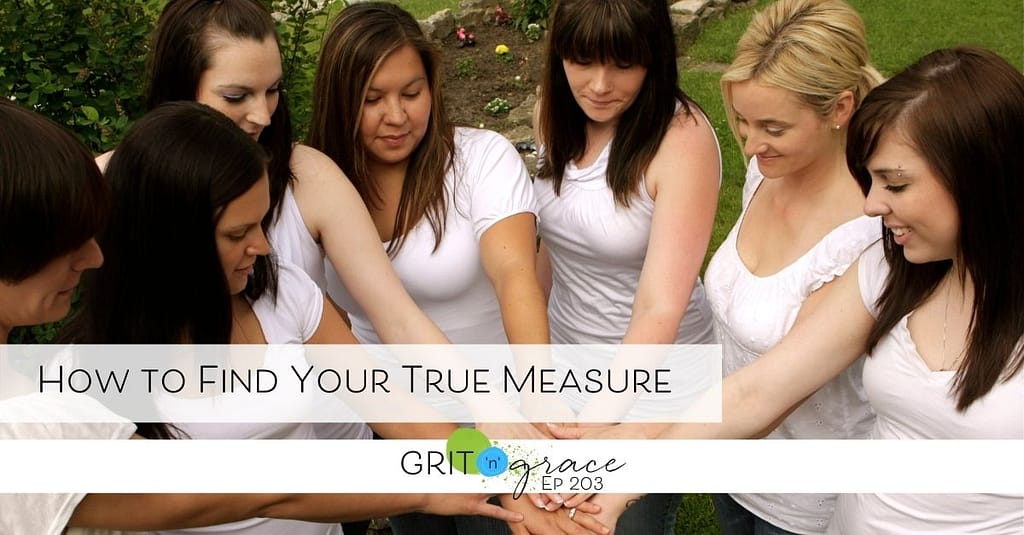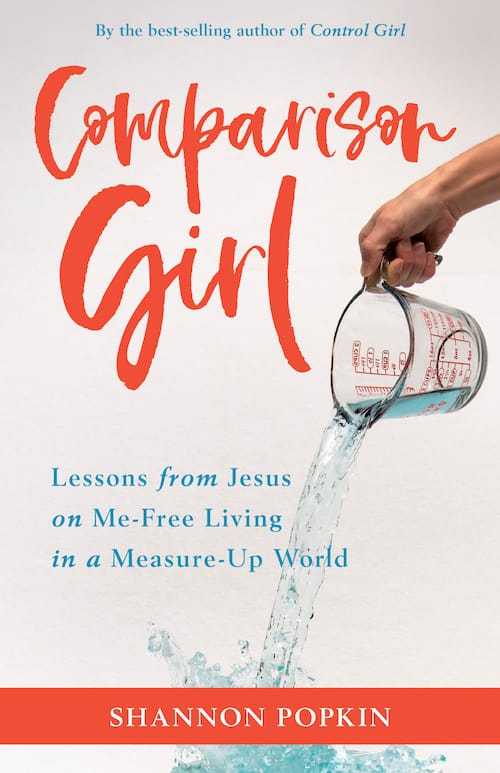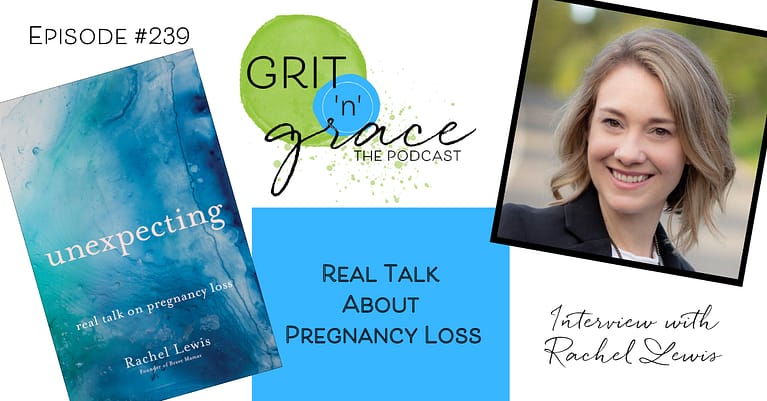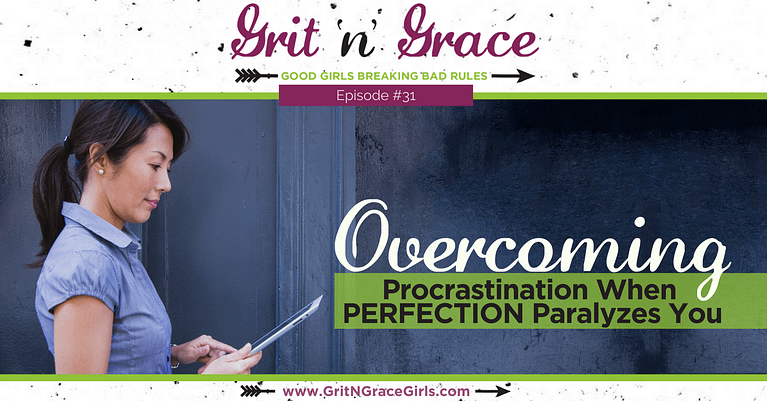“Do I measure up?” Often, when we’re trying to answer that question, we look around at everyone else to find our answer. In a word: we compare. In this episode, Shannon Popkin, author of Comparison Girl, shares a new and better way to find our true measure. She leads us to Jesus’ example, which — instead of making us feel less than or greater than — will set us free!
(This page contains affiliate links. Your clicks and purchases help support Grit 'n' Grace at no extra charge to you.)
Recommended Resources
- Visit www.ComparisonGirl.com for more information on the book, companion guide, teaching series, etc.
- Signup to receive Comparison Girl prayer cards, an illustrative drawing of Philippians 2:3-7, and more at https://www.subscribepage.com/comparisongirl
Downloads
- Episode #203 Transcript — coming soon!
Your Turn
- In what ways has comparison made you feel less than you are?
- In what ways has comparison made you feel more than you are?
- How would it change your life today to pour out instead of measuring up?
Featured Author — Shannon Popkin
Shannon Popkin is a writer, speaker, and Bible teacher who loves pointing others to the truth of God’s Word. She combines her gifts for humor and storytelling with her passion for Jesus. She is the author of several books, including Control Girl: Lessons on Surrendering Your Burden of Control from Seven Women in the Bible and Comparison Girl: Lessons from Jesus on Me-Free Living in a Measure-Up World.
Shannon and her husband, Ken, have been married for more than twenty years and live in West Michigan. They have three children—one in high school and two in college.
You can connect with Shannon via her website, Facebook, Instagram, and Pinterest.
Transcript — scroll to read here (or download above)
****
Grit ‘n’ Grace: Good Girls Breaking Bad Rules
Episode #203: How to Find Your True Measure
Note: This is a machine-generated transcript that is only about 60-70% accurate.
Shannon, we’re so excited to have you you know, your interview about your first book control girl has become one of the most all time most popular episodes of Green Berets. And so we are not exciting. So, we’re delighted to have you back to talk about your new book comparison girl. So tell us how you went from control to comparison to others see words here. What made you write a book about comparison, Shannon?
You know, sometimes when you’re writing one book, it prompts the next and that was sort of the case with control. I noticed that as I was studying those women of the Bible, there were lots of times that they were comparing and they’re comparing the things that were out of their control, which is what we often do as well, right. So yeah, and in really, you know, this has been a struggle for me. From the beginning from childhood comparing myself and you know, I think back to early motherhood and and now as I have kids that are getting older I just compare in different ways there are different things that lead me right back to the same trap. So yeah, I wanted to learn more about this for myself and and share with others what I’ve been learning.
So good. Oh, good. So you find it ironic that we often refer to comparison as a game. So why do references to the comparison game rubbed you the wrong way?
You know, I don’t think of it as a game and I don’t think our enemy thinks of it as a game. Right? I and here’s what leads me to say that. There are some verses in James chapter three, listen to James 314 through 15. It says, if you have bitter jealousy and selfish ambition in your hearts, this is not the wisdom that comes down from above, but as earthly unspiritual demonic. So here’s James. Okay. James is the pastor is Jesus’s brother, and he’s the pastor of the Jerusalem church. And the Jesus movement is just kicking off in their little churches starting up all over the place. And he sends this letter out and he’s concerned. He’s like, you know what, there are two kinds of wisdom in the world. There’s the wisdom from below, and the wisdom from above. And if you’re listening to this kind of wisdom that causes you to be jealous and looking over at somebody else and you know, hating the fact that they have more than you, or if you’re if you have this selfish ambition, trying to prove that You have more or you are more, you are not listening to the wisdom from our Jesus that is not the Jesus followers away is the measure up idea. This is this comes from and did you hear like how clear it says that this is earthly unspiritual demonic, but the tie between that sort of thinking that measure up agenda with the enemy’s agenda is a very clear tie. So there’s this is a strong warning from this pastor to all of these little churches. And and I think it’s a strong warning for us to you know, I think sometimes we stumble into comparison, not thinking about the battle going on. Like we’re not thinking about, you know, the, the rulers of the darkness. We’re thinking about, like, I don’t like it that she has more than me. She’s prettier than me or she’s more successful. I don’t like that. We’re just thinking about ourselves and our enemy likes that. So that’s why I don’t think it’s a game. I think it’s a strategy that our enemy uses against us.
That is so powerful. And it’s important because I, even as you were talking about that, I thought, Wow, I’ve been struggling with comparison just this morning. And I didn’t see it as a battle against me. I was like, Oh, I need to stop thinking like that. Like I don’t, I haven’t taken it very seriously. And yet we have seen women comparing themselves since the beginning of time. It’s all through the Bible as you talk about in your book. So it isn’t anything new. But talk to us for a minute about social media. Shannon has not changed the game do you think or here? I use the word gang. change things for us today.
Yeah, you know, social media. It’s like it’s opened up all a million windows at once and we can look in on each other. Right. I remember this time my daughter was about maybe eight or nine years old and she was not invited to a birthday party. And she was looking out the window and she’s watching these little girls in the neighborhood having this birthday party and realizing Oh man, I guess I didn’t make the list and feeling so hurt. Now, to me, it made complete sense that she wasn’t invited. She wasn’t in the same school or the same grade as the full girl down the street. And so, you know, I figured I understand that she didn’t understand it. And so here’s what I said, I was like, Honey, why don’t you come away from the window? Like, why don’t you let like, let’s just come away. Like, you don’t have to look at it. You don’t have to watch it, right? Like just come away from the window. And that’s kind of what I think some of us need to do with social media is just like, let’s just come away from the window. But it’s so hard, isn’t it? When all of these beautiful windows are flying up in a million windows at once and we can look in on the lives of women who are you know, putting up their highlights really, we know how we know that. And yet we forget to, to call that to mind as we’re looking at these beautiful pictures. And so yeah, I think social media has made it more difficult to to step away from the window. But then also I think like there’s this you know, there’s this great irony with social media. It’s meant to connect us. But what do we want to do when once we’ve like been on social media and and we’re feeling either inadequate or maybe sometimes we’re feeling superior we’re looking down at somebody else who and thinking oh man, I’m like a rock in it compared to her. Like my, my Instagram feed is so much more superior to hers. You know, either way, we don’t want to go be that person’s friend. Like think of my daughter after she’s watching this little birthday party going on. She did not after that party she did not say like, oh my friends free now and run out and you know, get back together with her little friend. No, she she like held back she pulled back. And that’s what we do, isn’t it after measuring ourselves against each other on social media. I say
Amy Lee back and take a very deep breath.
I was thinking of specific instances of that in my life. So thank you, Shannon, that that was an out. But that’s a good out.
So Shannon, you have this amazing analogy that literally brought me to tears as I was reading about it. It’s an analogy of living by the lines versus living by the spout. Could you explain that to to Amy and me and to our listeners, but especially to Amy.
All of us
before, you know it’s been a powerful metaphor for me. So I want our listeners to picture a measuring cup, you know, the kind that has the lines on the side, the glass panes and the kind of the spout and picture in your measuring cup is all all of the things that make you you. So your gifts and your aptitudes and your resources and you know, it’s what you look look at In the mirror, what you find in your bank account, all of those things are all tucked into your measuring cup and your enemy wants to take you to take your cup and put it next to somebody else’s, and get to work on comparing because like we said, after we start comparing well then either whether we feel inferior or superior, what we want to do is pull away from each other. And then we’re an easier target, right? But what are Jesus wants is for us to focus on the spout. He says, you know, you weren’t given these different things that are filling your measuring cup. They weren’t given to use that you might measure yourself and feel, you know, inadequate next to someone or superior to someone else. Like that’s not why you were given more or less of these different things. You were given what you were given, so that you might empty yourself and pour yourself out. And he invites us to, to live like he did. You know, Jesus, if Jesus had a measuring cup, how big would it be? I mean, I don’t know it would be, like bigger than the whole universe, I’m thinking it would be completely bringing it to the top full. And what did you do with his measuring cup? You know, he didn’t come to our world trying to prove that he was superior in any way, you know that he, he didn’t say, hey, let’s have a contest, and I’m going to beat you in this area and that area. No, that was not Jesus gold Jesus came Philippians two says he emptied Himself. He made himself like a servant, he tucked himself into the size of a little tiny embryo. And he took all of his greatness, all of his words and emptied himself out on that cross, that he might lift us up out of our pit of sin, right. That’s what Jesus did for us. And he invites us to now take our measuring cup, and live like he did and to empty ourselves and to serve others and lift them up with whatever we’ve been given. It’s not about ranking and comparing and measuring. It’s about living During our lives to pour ourselves out, like Jesus did.
So beautiful and you guys can probably see tears in my eyes. These are just the things. It’s minister into my heart and I needed today. Oh, thank you, Shannon. Alright, so I’m scared of the next question cuz Sherry’s already told me that we have to do your talent. So tell us about the disgust factor challenge. Why? What is that and why does disgust have no place in the turret?
Well, you know, we in the church, sometimes we feel comfortable looking down on people, don’t we? I mean, and the longer we’ve been around, the more comfortable we are with saying like, Where did you see? You know, fill in the blank. Did you see what she wore? Did you see what her kids are doing? Did you see what you know? What did you hear? They’re divorcing their you know? All of the fill in the blank, we feel comfortable looking down on people and I think it’s because there’s this deep inadequacy in our own hearts. And we’re just looking for some way that we can lift ourselves up by looking down on somebody else. That’s that’s really what we’re, we’re craving. But, um, you know, the church is not a place where we should celebrate disgust. Our Jesus never looks on our sin with a sense of disgust. Right? He went to the cross for us, He emptied himself out, he died for us. Now, certainly, there were times that he responded sharply, you know, to the Pharisees, what he called out and what disgusted him was a sense of superiority. And and, you know, I think that’s the whole this measure up world that we live in that I mean that that pride and that sense of superiority, that’s what kept the Pharisees from Jesus, and that’s what our Lord is disgusted with anything that would keep us from him. He wants us to come in humility. But the church should not be a place where we find any sense of superiority. Like, you know, you know, the same The, the place before the crisis level, you know, there’s no, there’s no superiority, all of us should come to the church with a sense of inadequacy. And we’re just all sinners, we’re all in the same category. We’re not looking over at that other sinner, like no put me in that category, because without Jesus, that’s who I am. And yet, and, you know, our disgust can be, it can be over right and wrong sorts of things. But it can also be just over in blind spots. I know you all have talked about blind spots, right? Or can be just over differences, like people just do things differently. You know, my husband drives differently than I do. He takes the backroads and I like the highway or stuff like that, you know, just things that there is no clear right or wrong and Bible And so when we look at each other with disgust, that’s what I had this disgust. So you’re talking about my disgust factor challenge, I had this like this group, and we all decided, Okay, we are going to watch for disgust in our faces and in our voices and in our attitudes. And we’re going to work to extract that over the next few weeks. And we just thought all over the place. Everywhere we turned, you know, like disgusted with the candidate and empty the dishwasher disgusted with the politician who’s lying or disgusted with, you know, somebody in the church who this that or the other I mean, just all over the place. And ladies, we’ve got to extract that disgust because let me just say one more thing. We can’t be disgusted with somebody without also we can’t communicate disgust without also communicating something about ourselves and its superiority. Like we can’t be disgusted with somebody else and not be looking down on them. And so that’s why there’s no place for it in the church.
Oh, see, I can into this conversation today with a misconception I’m thinking some of our listeners might have, which is, I usually think of my me comparing myself negatively to other people, and I’ve never thought of disgust as a superior comparison.
Whoa, no, I think that’s gonna be that by lunchtime has read through the book right now. And that’s what they’re saying to is like, yeah, I knew what drew me to the book. I knew what drew me to this concept. And it’s those feelings of inadequacy. I’m happy to talk about those. But the other side, where I’m the one who’s seeing myself as superior, like, that’s a lot harder to own and recognize, and that takes a lot more of emptying myself, right? Both sides, you know, empty myself from a sense of superiority. That’s, you know, that’s necessary, but also emptying myself when it’s a sense of inferiority. Like inferiority is really just me saying, Yeah, you’re, you’re you have more than I do, and I don’t like that. I wish that I was Wasn’t there right? I wish I was perfect. Like you look to be perfect. Oh, right. I went to fellow perfectionist, and I can speak openly about this. All right.
All right. Well, we got as you saw in our Facebook group, we got some amazing questions from our listeners, we got far more than we can we can handle in this time together. So we’re just going to pick a few of them. And then when we do our follow up conversation, Amy and I will pick up a few more of them. Jen, Brian asks, What’s the difference between healthy and unhealthy comparison?
habits such a great question, isn’t it? You know, I want you to picture yourself entering a room full of people. Let me back up and say, you know, there’s a lot of comparison type books on my bookshelf. And most of them have me sitting in my chair time with God and reminding me you know, that I loved and especially And I’m chosen. And, you know, I’m a daughter of the king and I welcome before the throne. And all those things are good and right and true. But sometimes I leave that chair time, you know, where I’ve spent reminding myself of all of these wonderful things about me and I go out into a room full of people. And I get right back to comparing. And so what I wanted to find in Scripture is, you know, what does it say about how I respond to be a roomful of people, like, knowing that I am a daughter that I’m chosen that I’m loved, and I’m church, but what about when I get around like all those other people who are loved and cherished and chosen? And all of the differences that I see in that room like, you know, what can I do about that? Okay, so, picture of yourself, you’re entering this room full of people and your bent is to get into that room and focus on the differences and you know, focus on the lines on your measuring cup, like who has more of this And who has less of that? And how do I fit into the measurements? And so but what if we could enter that room focused on the spout? What if we could have, you know, a me free attitude entering that room? So, you know, I don’t think that in my chair time, the focus on myself is all is that’s not supposed to be my only focus. Because if that were the case, Jesus, I think would just say that, you know, he would just remind everybody, like, Look, you are chosen, you are loved. God loves you. He sees you. He’s with me. Jesus didn’t see those things. But he put a lot more emphasis on serving each other and seeing other people and humbling ourselves and emptying ourselves. There are all of these in comparison girl the book is built around these upside down comparisons of Jesus so I call them red letter comparisons Jesus The first will be last. The last will be first, the greatest in the room is the servant of all. whoever humbles herself in the room, she’ll be exalted. Whoever exalts herself in the room will, she’ll be humbled. So sort of upside down. And this, this is like just this me free way of looking at things. It’s really not about me, it’s not about measuring up, it’s not about getting ahead. So if I can enter that room with that sort of mindset, where I’m going in saying, How can I humble myself? Who can I lift up tonight? How can I serve somebody in this room? And how can I be one who lives like Jesus and empties myself? How can I be the smallest person in this room? How can you know Jesus tucked himself into the size of an embryo? How can I live like that? Then I’m free. I’m free of the lines, and I’m free to pour out what’s in the measuring cup. And here’s the beautiful thing about that measuring cup analogy. When you take a measuring cup, and you tilt it to one side, so you’re ready to pour it out. The lines don’t mean anything. They’re irrelevant, you know, so when we’re pouring, we’re not measuring. And that I think is a really healthy way to compare. So when I can come into a room and look around with my measuring cup tilted, you know, it’s not about measuring up, but comparing myself and saying, okay, you know, my great gift for humor and you know, carrying the conversation that’s not needed over in this circle, because look, we have her and she’s already making everyone feel welcome. Look over here, there. Here’s the one over here is feeling a little bit left out. Maybe she needs someone to listen to her. I’m gonna go and serve this person over here. And so comparing and finding what gifts are already in the room, where am I not needed? And where am I needed? Where, what do I have in my measuring cup that I can pour out and lift someone else up? Today? How can I serve? What can I do? That is a beautiful me free form of comparison that you’ve caused us to
Oh, there’s a huge Smile at Amy’s face it. Amy,
if you think about the spiritual gifts, right, that’s, that’s really what we’re taught. We all have we are all different, we’re not uniform, but we’re called to unity. And so unity is not created out of everybody being exactly the same or having a measure. Jesus could have put equal amounts in our measuring cups, right? But no, we all have a little more of this and a little less of that in our cups and we were designed, you know, to all be forming it let me go back to that room analogy where if if we go in focus on the lines, we’re probably going to leave the room less connected with each other. Right either feeling like Oh, man, I didn’t I hate what I said. I’m look right. I wasn’t wearing the right thing. My hair looks like a mess. And did I sound dumb when I said that? You know, all of those measure up, like we leave the room feeling like, I should not be gone, right? But if we go to the room with our measuring cup tilted and we’re asking How can I serve, and then we spend our time pouring into others and receiving what they’re pouring into us. We leave that room connected. And that’s the beauty of the church. We all are designed to be receiving and pouring. And we all have different gifts. And that’s how our unity forms is because of this. Not you. Not uniformity, but our differences. That’s how that’s what forms the unity of the Church of Jesus Christ.
So good. Any you want to pick one more question and I’ll tell you just
okay, it’s like this. Should we play small?
Okay, so let me find who said that. I thought that was a really good one. I like that with me.
Yeah.
Okay, that was Tammy.
Okay. Shana, and Tammy asked us should we play small so that others don’t feel less than in some way? And I think it ties into what you just answered, but it’s such a great question. It’s such a great question. So, you know, I think there’s a difference between playing small
and actually humbling ourselves. Humility is not like, you know, denying that I have certain gifts or aptitudes. Like, it’s not denying that I have worth, right. That’s not humility. Jesus didn’t do that. Jesus didn’t deny any of his greatness. But Jesus used everything that he is and everything that he has to serve. And, you know, there’s this, this time when the disciples are arguing about greatness, you know, who’s having the greatest contest, you know, and, and so, Jesus responds to them. And this is where he talks about being small, you know, being the small person in the room and he takes the baby, and he brings this baby and he holds the baby on his on his hip, and he’s like, if you want to be great, be like this baby. You know, be the smallest person in the room, make yourself small. And here’s what Jesus didn’t He didn’t say, look, you guys already are great. Come on, you’re the 12 disciples. Yeah, there are 12 thrones with your name on it, you know, he wasn’t about like, reminding them of their greatness. He showed them how to be great. And he said, Make yourself small. Like, you know, we often talk about humility as I was humbled like it happened to me. But what if humility was something that we chose for ourselves? Like, we, I think in the book, I called it leveling ourselves, you know, like, we make ourselves small, not that we have less worth, but we take all of our worth and all of our gifts and talents, and we use those to lift others up like that. So the question was, I think, should we? What was that question again? It was like, should
we? Yeah, should we play small so that others don’t feel less than in some way? Right. So there’s a difference
between playing small and making herself small and I think the other people can feel it. Don’t you? win. Emily’s patronizing me or you know, they’re playing small that’s completely different than when I’ve emptied myself of trying to rank outrank someone, and I truly am genuinely serving you just by, by friendship or by, you know, maybe helping you in some way or encouraging you supporting you. There is a difference between that littling attitude of emptying myself out or playing little, like playing little No, not so much but becoming small and lifting others up like that is like Jesus answer that is beautiful, huh?
So Shannon, what closing words do you have to motivate our listeners who want to break free from comparison?
I want for you to remember this spiritual battle that we started with. I want you to remember that you have an enemy who is and he doesn’t really want you to recognize you know, Amy, you said That, you know, you weren’t thinking about this morning, you were fighting this battle with comparison, but you weren’t thinking about the fact that you have an enemy who wants you to fall right into that trap. So he’s content to just play from the shadows and whisper these thoughts in our ear. So here’s what I want our listeners to remember. If there’s some message going on in your mind, that like, look at her, she’s so much better than you. she’s prettier than you. She’s more successful than you. That is not your Jesus speaking to you, he would never talk to you that way. He would never say that to you. But by the same token, if there’s some message going on in your mind, where you know, there’s someone beneath you, like, oh, look over at her, she’s completely failing at motherhood. She’s completely failing at work or in her marriage, that voice also that is never Your Jesus. That’s, that’s the measure of mindset of this world. That’s your enemy, laying a trap for you to fall right back into comparison and you He doesn’t care whether you are comparing down or comparing up he just wants you to keep measuring yourself and focused on yourself. And Jesus invites you to live me free. Me Free where it’s not about you not living by the the measure of lines but living by the scope.
You’ll never miss an episode when you sign up for weekly updates!











